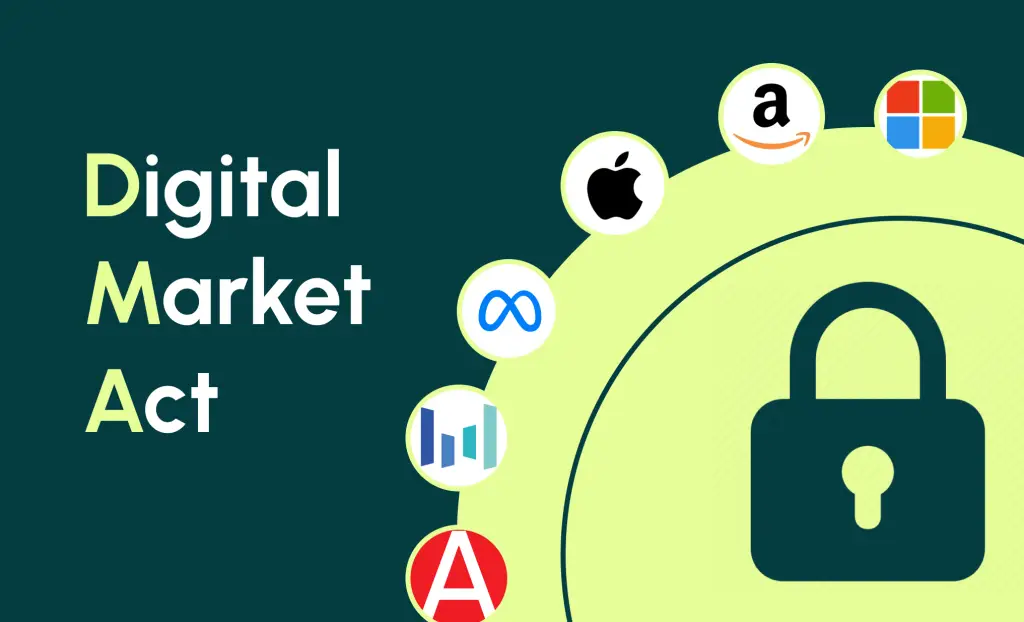The DMA ensures fair and open digital markets by regulating large online platforms. Learn how to comply and what it means for your business.
- Overview of DMA
- Who must comply with DMA
- Key Requirements of DMA
- Consent Collection Responsibilities under DMA
- How does DMA affect your business
- Fines for non-compliance
Overview of DMA
The Digital Markets Act (DMA) is an EU regulation aimed at creating fairer and more competitive digital markets. It targets large digital platforms, known as gatekeepers, that have a significant impact on the internal market. The DMA was adopted to address structural issues in the digital sector and came into force on November 1, 2022, with full compliance required by March 2024.
Consumers benefit from increased choices, better services, and fairer prices. Overall, the DMA aims to curb unfair practices by dominant platforms, fostering a healthier digital market ecosystem.
Who Must Comply with DMA?
As of September 2023, the European Commission has designated six gatekeepers under the DMA:
Alphabet (Google): Services include Google Search, Google Maps, Google Play, YouTube, and Google Shopping.
Amazon: Core services include Amazon Marketplace and Amazon Advertising.
Apple: Designated for services like the App Store, iOS, and Safari.
ByteDance: Known primarily for the TikTok platform.
Meta (Facebook): Includes Facebook, Instagram, WhatsApp, and Facebook Marketplace.
Microsoft: Services include Windows OS, LinkedIn, and Microsoft Advertising.
These gatekeepers are required to comply with the obligations set by the DMA to ensure fair competition and prevent market abuses. To be designated as a gatekeeper, a platform must meet specific criteria:
Significant Impact: The platform has a substantial economic presence and significant influence on the internal market, operating in multiple EU countries.
Intermediation Position: It serves as an intermediary, linking a large user base to a significant number of businesses.
Durable Market Position: The platform has maintained a stable and entrenched position over time.

Key Requirements of DMA
Fair Access: Gatekeepers must provide fair access to their platforms and services, preventing unfair practices.
Transparency: Ensure transparency in advertising services and user data handling.
Data Portability: Allow users to easily port their data across different platforms.
Interoperability: Enable third-party products and services to work seamlessly with the gatekeeper’s platform.
Non-Discrimination: Do not favor own services over competitors’ offerings.
Consent Collection Responsibilities Under the DMA
Gatekeepers are responsible for collecting user consent. However, the DMA allows these platforms to collect consent for online marketing purposes via third-party services when direct collection through the gatekeeper’s core platform is not feasible. It is anticipated that gatekeepers will leverage this provision to ensure compliance.
Consent related to the DMA must meet GDPR standards, meaning it must be freely given, specific, informed, and unambiguous. It should be as easy for users to withdraw their consent as it is to give it. The DMA also explicitly prohibits the use of dark patterns or any tactics that nudge users into consenting without genuine choice. This ensures transparency and respect for user preferences, aligning with both GDPR and DMA requirements.
How Does the Digital Markets Act Affect Your Business?
Not only gatekeepers are affected by the DMA; if you advertise on major platforms like Google, Microsoft, or Meta, your business will likely be impacted too. You might need to gather user consents on behalf of these gatekeepers, necessitating a review of your consent collection processes. It’s important to ensure that your methods for obtaining consent are clear and straightforward. This means users should easily understand what they are agreeing to and be able to give or withdraw their consent without difficulty. Improving these practices will help you stay compliant and maintain user trust.
Fines for Non-Compliance with DMA
Non-compliance with the Digital Markets Act (DMA) can result in fines up to 10% of a company’s total worldwide annual turnover, increasing to 20% for repeated violations. Additionally, periodic penalties of up to 5% of daily global revenue can be imposed for ongoing non-compliance.
Get Your Store DMA Compliant Now
Ensure your website meets all DMA requirements with Consentik’s comprehensive compliance tools. Protect your business and build trust with your customers effortlessly.
Start free with basic features
Start 7-trial day
Start 7-trial day
Start 7-trial day
Start 7-trial day






